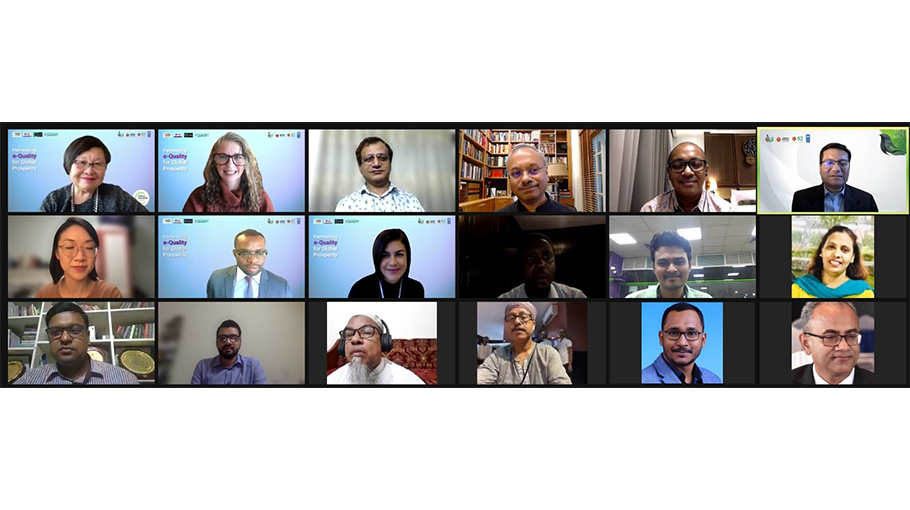Global leaders call for using e-Quality data to bridge digital divide

Global leaders highlighted the importance of utilizing e-Quality data for bridging the gap between digital services and underserved citizens and accelerating progress towards attaining the SDGs. Leaders in resilient communities and government initiatives from Bangladesh, Germany, Kenya, Singapore, and USA, made this open call at a side event of the 77th United Nations General Assembly titled, Harnessing e-Quality for Global Prosperity. e-Quality is defined as the input required to achieve the intermediate objective of digital inclusion or digital equality, which in turn, contributes to achieving the ultimate goal of overall equitable development. Hence, the adoption of well-informed digital inclusion policies, as well as meaningful engagement in public-private partnerships to improve local communities’ service to their citizens, warrants the use of e-Quality data.
The side event was jointly organized by the Bangladesh government’s a2i Programme, People-Centered Internet, and the South-South Network for Public Service Innovation (SSN4PSI) as part of the UNGA77 Science Summit Session and featured a panel discussion on Networks of Resilient Communities: Harnessing e-quality Data to Improve the Prosperity of Global Citizens of the Future.
NM Zeaul Alam PAA, Senior Secretary for Information and Communication Technology Division of the Government of Bangladesh, delivered the opening and welcome remarks, while Mei Lin Fung, Chair & Cofounder of People-Centered Internet, delivered the closing remarks. Anir Chowdhury, Policy Advisor of the a2i of the Bangladesh government’s Cabinet Division, ICT Division, and UNDP Bangladesh gave a keynote presentation titled, ‘Equality through e-Quality’.
Emphasizing the significance of global collaboration and partnerships in ensuring e-Quality, Senior Secretary Alam spoke of how, in today’s world with the digital revolution, the digital divide has become the determining factor behind the overall inequality and disparities in society. But, if managed properly, digital development is also a powerful equalizing factor in overall economic and social development.
Another important element of ensuring digital development is the resilience of communities that are emerging as a key feature of the digital ecosystem. Through its successful Digital Bangladesh initiative, the country has been one of the leaders in developing inclusive, bottom-up approaches which utilize digital technology to increase the prosperity of citizens.
In his keynote presentation, Mr. Chowdhury, also an Advisor to the South-South Network for Public Service Innovation (SSN4PSI), touched upon a range of issues pertinent to the threat of an expanding digital divide, many of which were magnified by the COVID-19 pandemic when rendered most services accessible through digital means only. Noting the achievements of inclusive digital transformation in Bangladesh, Mr. Chowdhury pointed out the necessity of bridging the gap between digital services and analog citizens. Public-private partnerships and establishing gender parity among entrepreneurs could have a big role in ensuring equitable digital access. He remarked that e-Quality should be treated as a fundamental right and the critical importance of equitable access to digital services as a major aspect of designing an appropriate policy framework and determining factor for ensuring equitable development cannot be overstated.



